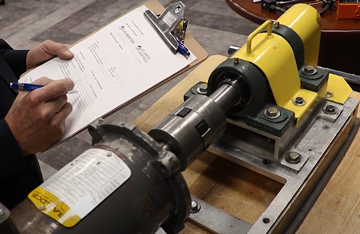During this half-day workshop, all training programs, Reliable Manufacturing, Precision Maintenance and Organizational Efficiency, are presented to the leadership group to ensure understanding and involvement of the managers. Many thought process will be discussed: how do mindsets, culture and skills need to change, with leadership support, in order to improve reliable manufacturing? What does applied planned maintenance actually entail and how it is different from what is done today? Why must mechanical skill development and maintenance improvement start with expertise in proper assembly and installation, as well as alignment and balancing techniques?
This type of mindset and work change expands the role of technicians. This presentation is designed for senior management, site and/or corporate managers, maintenance/production management, directors, engineers, supervisors, planners, union leaders, senior mechanical technicians, senior operators, and other site decision makers who have a direct or indirect impact on plant reliability.





